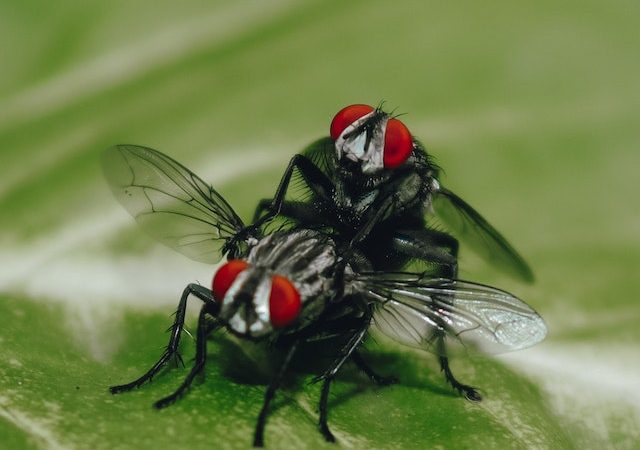The phenomenon of watching death shortening a fly’s lifespan is a fascinating area of research that sheds light on the complex relationship between social experiences, stress, and aging. While the exact mechanisms are not yet fully understood, here are some key insights into the science behind this phenomenon: 1. Social Stress Response: Flies are social
The phenomenon of watching death shortening a fly’s lifespan is a fascinating area of research that sheds light on the complex relationship between social experiences, stress, and aging. While the exact mechanisms are not yet fully understood, here are some key insights into the science behind this phenomenon:
1. Social Stress Response: Flies are social insects that exhibit complex behaviors and interactions. Watching death in flies can induce a social stress response, triggering physiological and molecular changes. This response involves the release of stress hormones, such as corticosteroids, which can have detrimental effects on cellular and molecular processes related to aging.
2. Stress and Aging: Chronic or intense stress can accelerate the aging process in various organisms, including flies. Stress disrupts cellular homeostasis and can lead to increased oxidative stress, DNA damage, and impaired cellular repair mechanisms. These factors contribute to the accumulation of cellular damage and accelerated aging.
3. Impact on Physiological Systems: Witnessing death may impact physiological systems in flies, such as the immune system and metabolism. Flies might experience altered immune responses, increased inflammation, or imbalances in nutrient availability and utilization. These physiological disruptions can contribute to accelerated aging and decreased lifespan.
4. Social Isolation and Loneliness: Flies are social creatures that typically live in groups. Social isolation and loneliness can have detrimental effects on well-being and health in many organisms, including flies. Watching death might trigger a sense of social isolation or disrupt the social environment, which can impact stress levels and accelerate aging.
5. Social Transmission of Pathogens or Toxins: The act of dying or dead flies can release pathogens or toxins into the environment. The presence of such substances can contribute to increased stress and physiological damage in the surviving flies. Pathogens or toxins can induce immune responses, oxidative stress, or other detrimental effects that shorten lifespan.
6. Evolutionary Trade-offs: The phenomenon of watching death shortening lifespan in flies may have evolutionary implications. In nature, resources can be limited, and competition for survival and reproductive success is intense. Allocating resources towards survival, rather than long-term longevity, can be advantageous in certain circumstances. Accelerating aging in the presence of death may allow surviving flies to optimize resource allocation and enhance their chances of reproductive success.
It’s important to note that while the science behind why watching death shortens a fly’s lifespan has been studied in detail, the findings might not directly translate to other organisms, including humans. The biology of aging is complex and influenced by a wide range of factors. Nonetheless, studying this phenomenon in flies provides valuable insights into the interplay between social experiences, stress, and aging. It can contribute to our understanding of stress-related aging processes and potentially inform research on stress and aging in other organisms, including humans.

















Leave a Comment
Your email address will not be published. Required fields are marked with *